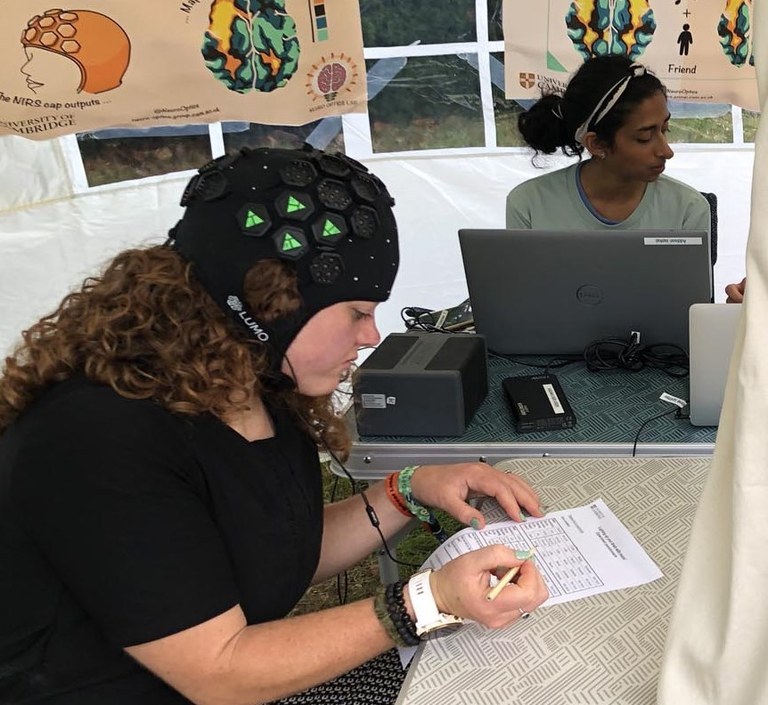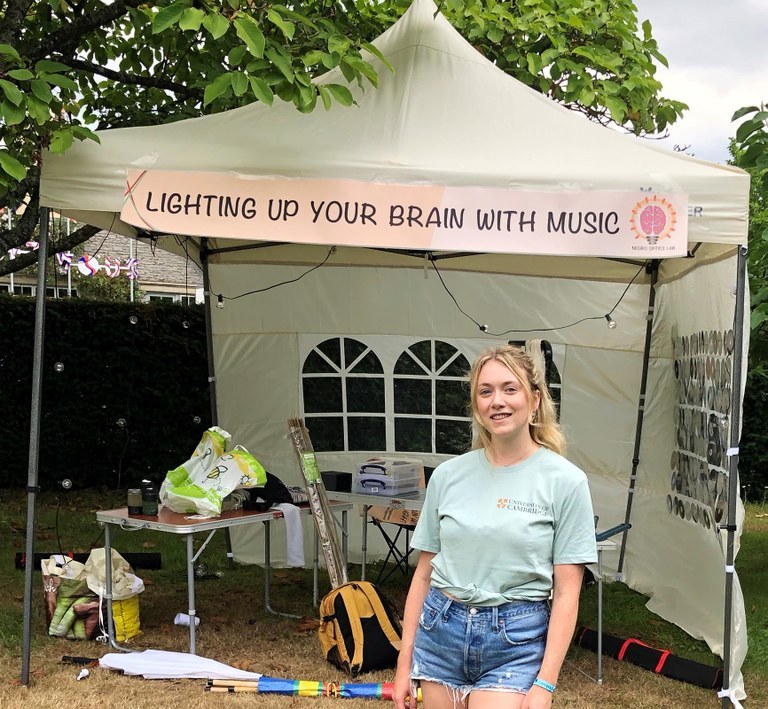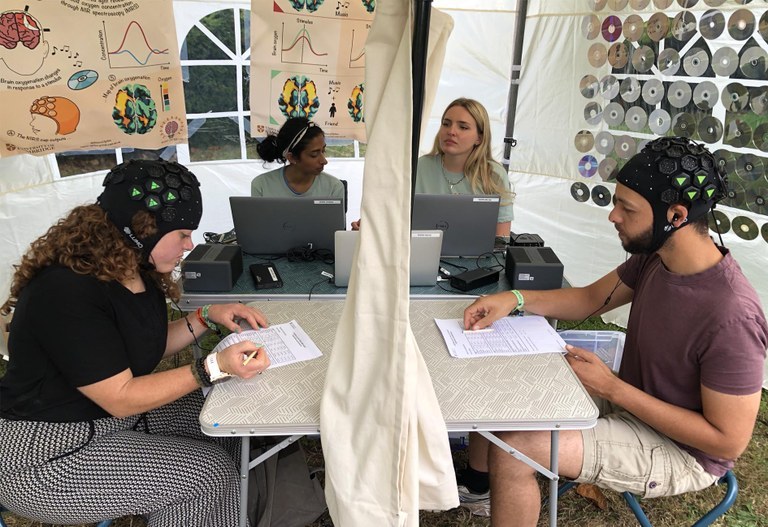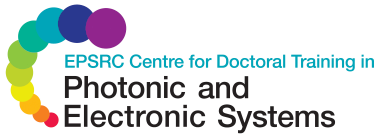
PhD student monitors the brain activity of volunteers listening to music at festival
Georgina Leadley, a PhD student on the CEPS CDT at University of Cambridge, and her research group conducted an experiment at Green Man Festival to monitor the brain activity of healthy volunteers whilst they listen to music. This small study forms part of early investigations into the possible links between dementia, memory and music using non-invasive techniques with light.
First year PhD student Georgina Leadley, her supervisor Dr Gemma Bale and colleagues at the Neuro Optics Lab based in the Departments of Engineering (Electrical Division) and Physics at University of Cambridge are working to develop new non-invasive technologies to monitor brain activity using light.

IMAGE: Georgina Leadley at the Neuro Optics research stand, Green Man Festival 2022
They use near-infrared spectroscopy (NIRS) to obtain maps of functional brain activity. Infrared light is shone into the head, scattered by brain tissue, and the change in intensity of the detected light is used to determine the concentration of brain molecules such as oxy and deoxy-haemoglobin (oxygenation) and cytochrome-c-oxidase (metabolism). These two biomarkers together give a good indication as to whether the brain is functioning correctly and are correlated with general brain health.
"We will be analysing the results over the next few weeks and are excited to see what might be uncovered."
One current clinical interest is the link between dementia, memory and music. Music therapy is a powerful tool that can allow dementia patients to access old memories through music and has been shown to improve their symptoms of dementia. The group want to understand more about the underlying mechanisms at play, specifically the brain’s response to different types of music, whilst subjects are alone and also in a social setting.
Georgina’s group devised an experiment to look at the brains of healthy volunteers while listening to music. First, they would listen to happy and sad music on their own then with a friend where they could watch each other and dance together. They conducted their experiment on over 160 willing participants at the Green Man Festival in August 2022. The team worked tirelessly and meticulously to fit the brain imaging caps to each participant, and carefully scan their head whilst operating the imaging systems. They successfully gathered more data in one day at the festival than they would normally over many months with standard volunteer recruitment methods.

IMAGE: Volunteers wearing brain scanning caps at Green Man Festival 2022
As well as gathering a vast amount of data from over 160 participants, Georgina’s research group engaged the festival-going public in the field of brain science and shared the technology the Neuro Optics Lab is developing.
Georgina said, “The fact that we managed to get our brain imaging systems working in a field with no mains-power is incredible. The team worked tirelessly to fit the brain imaging caps, meticulously and accurately scan each participant, and operate the imaging systems to deliver these data sets. We will be analysing the results over the next few weeks and are excited to see what might be uncovered. We're very grateful to Green Man for having us and to each study participant.”
With further research and data from more participants the group hope to be able to use machine learning to decode the link between music and memory pathways, and ultimately progress the future use of light in non-invasive medical therapeutics.
Find out more
Georgina Leadley: link
 Georgina is an EPSRC funded PhD student on the CEPS CDT, based in Paediatrics at Lucy Cavendish College Cambridge. She is part of the Neuro Optics Lab based in the Departments of Engineering (Electrical Division) and Physics, run by Dr Gemma Bale, one of her four supervisors.
Georgina is an EPSRC funded PhD student on the CEPS CDT, based in Paediatrics at Lucy Cavendish College Cambridge. She is part of the Neuro Optics Lab based in the Departments of Engineering (Electrical Division) and Physics, run by Dr Gemma Bale, one of her four supervisors.
Dr Gemma Bale and her other exciting projects (including dogs and seals!): link
Neuro Optics Lab at University of Cambridge: link
Green Man Festival: link
